

Home - SchooLibraryNJ - LibGuides at Rutgers University SC&I. How to Be a Better Web Searcher: Secrets from Google Scientists. In a cheery, sunshine-filled fourth-grade classroom in California, the teacher explained the assignment: write a short report about the history of the Belgian Congo at the end of the 19th century, when Belgium colonized this region of Africa.
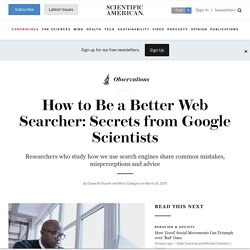
One of us (Russell) was there to help the students with their online research methods. I watched in dismay as a young student slowly typed her query into a smartphone. This was not going to end well. She was trying to find out which city was the capital of the Belgian Congo during this time period. She reasonably searched [ capital Belgian Congo ] and in less than a second she discovered that the capital of the Democratic Republic of Congo is Kinshasa, a port town on the Congo River. But the student did not realize that the Democratic Republic of Congo is a completely different country than the Belgian Congo, which used to occupy the same area. The deep problem here is that she blindly accepted the answer offered by the search engine as correct.
8 Great Strategies To Help Students Ask Great Questions - TeachThought. 8 Strategies To Help Students Ask Great Questions by Terry Heick Questions can be extraordinary learning tools.
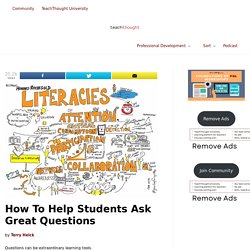
A good question can open minds, shift paradigms, and force the uncomfortable but transformational cognitive dissonance that can help create thinkers. In education, we tend to value a student’s ability to answer our questions. Interactive: Real, LOLZ, oops or fake? - MEDIA LITERACY - Education. Civic Online Reasoning. A Few Creative Ways to Use Student Blogs. Images, Artwork, Charts, Graphs, Maps & Tables - MLA Citation Guide (8th Edition) - LibGuides at Columbia College (BC) Reproducing Figures and Tables Reproducing happens when you copy or recreate a photo, image, chart, graph, or table that is not your original creation.
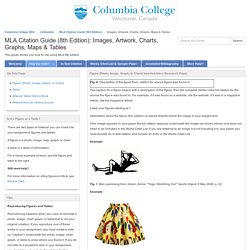
Posters - New - MLA8 Guide - LibGuides at Western Academy of Beijing (HS) 5 P's for a Positive Digital Footprint Board Game - Teaching in the Primary Years. Interactive: Source Checker - MEDIA LITERACY WEEK - Education. Save The Pacific Northwest Tree Octopus. Help Save The ENDANGERED From EXTINCTION!
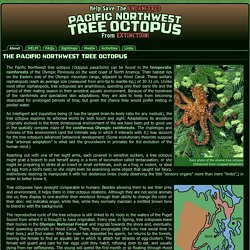
The Pacific Northwest Tree Octopus Rare photo of the elusive tree octopus (Enhanced from cropped telephoto) The Pacific Northwest tree octopus (Octopus paxarbolis) can be found in the temperate rainforests of the Olympic Peninsula on the west coast of North America. All About Explorers. Infographic: Destination – Leanne Morgan. Instructional Resources - Fake News - SJSU Research Guides at San José State University Library. The Challenge That's Bigger Than Fake News. Since the November 2016 presidential election, coverage of “fake news” has been everywhere. It’s hard to turn on the TV without hearing the term. Google and Facebook have pitched plans for fighting the menace.1 State legislators have even introduced bills to mandate K–12 instruction on the topic.2 Fake news is certainly a problem.
Lateral Reading: Reading Less and Learning More When Evaluating Digital Information by Sam Wineburg, Sarah McGrew. Abstract The Internet has democratized access to information but in so doing has opened the floodgates to misinformation, fake news, and rank propaganda masquerading as dispassionate analysis.
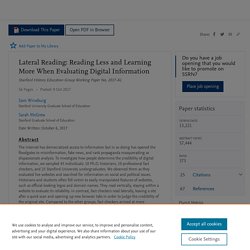
To investigate how people determine the credibility of digital information, we sampled 45 individuals: 10 Ph.D. historians, 10 professional fact checkers, and 25 Stanford University undergraduates. We observed them as they evaluated live websites and searched for information on social and political issues. Historians and students often fell victim to easily manipulated features of websites, such as official-looking logos and domain names. They read vertically, staying within a website to evaluate its reliability. Toolbox: Media to Support Your Independence - A Fact Checker's Guide to the Internet: 3 Habits of Awesome Researchers - LibGuides at Edward R Murrow High School.
4. Web Literacy Strategies LKSW 2018 (Kim Beeman) - Apresentações Google. Empire State Information Fluency Continuum. A new resource, called the Empire State Information Fluency Continuum, is now available thanks to the NYC School Library System.
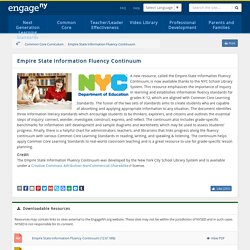
This resource emphasizes the importance of inquiry in learning and establishes information fluency standards for grades K-12, which are aligned with Common Core Learning Standards. The fusion of the two sets of standards aims to create students who are capable of absorbing and applying appropriate information to any situation. The document identifies three information literacy standards which encourage students to be thinkers, explorers, and citizens and outlines the essential steps of inquiry: connect, wonder, investigate, construct, express, and reflect.
ATL Skills audit. Tracking the Source of Viral Content – Web Literacy for Student Fact-Checkers. Globaldigitalcitizen. Web Literacy for Student Fact-Checkers – Simple Book Production. Approaches to Learning (ATL) Posters. Non-fiction: the elephant in the library.
Rebecca Tobler writes about the need to rethink non-fiction collections, and consider providing engaging resources that spark students’ imaginations.
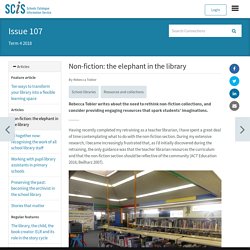
Having recently completed my retraining as a teacher librarian, I have spent a great deal of time contemplating what to do with the non-fiction section. During my extensive research, I became increasingly frustrated that, as I’d initially discovered during the retraining, the only guidance was that the teacher librarian resources the curriculum and that the non-fiction section should be reflective of the community (ACT Education 2016; Beilharz 2007).
Unfortunately, if we were to actually do this, there would likely be either a tiny non-fiction section, or none at all. How to avoid plagiarism. WE Writing an annotated bibliography. Directory of Open Access Journals. Online Verification Skills — Video 1: Introductory Video. Review Search Results. Spot fake news online with these free tools for fact-checking bogus stories - Science News - ABC News. There is no substitute for diligent research when a journalist fact-checks a story.
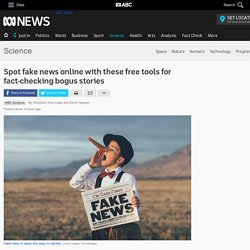
But if you, the reader, suspects an article, video or image might be fake, there are some simple tools you can use to help decide whether what you're looking at is real or phony. As journalists working for an organisation that verifies social media content, we spend our time monitoring the depths of the internet, trying to sort fact from fiction on behalf of news providers, including the Australian Broadcasting Corporation. 10 Indelible Internet Safety Rules for All of Us to Remember.
The Internet is an amazing resource for people of all ages.
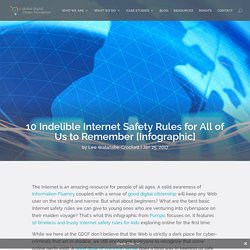
A solid awareness of Information Fluency coupled with a sense of good digital citizenship will keep any Web user on the straight and narrow. But what about beginners? What are the best basic Internet safety rules we can give to young ones who are venturing into cyberspace on their maiden voyage? Getting Started - Images - LibGuides at Ohio Wesleyan University Libraries. Images are subject to the laws of copyright and intellectual property.
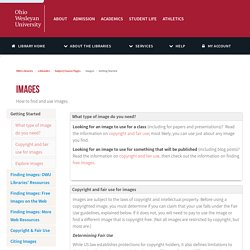
Before using a copyrighted image, you must determine if you can claim that your use falls under the Fair Use guidelines, explained below. If it does not, you will need to pay to use the image or find a different image that is copyright-free. (Not all images are restricted by copyright, but most are.) Determining Fair Use While US law establishes protections for copyright holders, it also defines limitations to their rights. Copyright Fair Use and How it Works for Online Images. Five ways you're being fooled by fake stories online - Science News - ABC News. Sign into any social media platform and you're immediately bombarded by endless feeds full of links to news stories, often accompanied by breathless comments or rants, each jostling for a precious sliver of your attention. Throw in the fact that fake news spreads faster online than the truth and it can be hard to quickly and accurately discern what's real from the hoaxes.
So don't believe everything you read — or see or hear. Site of the Week. Teaching Students to Navigate the Online Landscape. For online media literacy that works, speed and ease matters. It is a profoundly erroneous truism, repeated by all copy-books and by eminent people when they are making speeches, that we should cultivate the habit of thinking of what we are doing. The precise opposite is the case. Civilization advances by extending the number of important operations which we can perform without thinking about them.
Operations of thought are like cavalry charges in a battle — they are strictly limited in number, they require fresh horses, and must only be made at decisive moments. — Alfred North Whitehead, An Introduction to Mathematics (1911) Top Ten Types of Plagiarism Infographic. Student Infographics Top Ten Types of Plagiarism Infographic Top Ten Types of Plagiarism Infographic Plagiarism is said to occur when someone takes the work or ideas from another person and uses or presents them as his or her own ideas.
Turnitin - The Plagiarism Spectrum. Find the Date of a Web Page. Evaluating Websites - AndySpinks.com. MLA Style, 8th Edition: An Introduction. Teaching Students to Legally Use Images Online. Articulate Storyline Information Literacy Modules by Marquette University Raynor Memorial Libraries. Anatomy of Citations (MLA) Factitious. The CARS Checklist (Credibility, Accuracy, Reasonableness, Support) What is information literacy? How to Begin Asking Authentic Learning Questions Right Now. Authentic learning is a useful approach for encouraging our learners to develop the critical thinking skills and confidence needed to tackle real-life situations.
However, it can be hard to get out of the more traditional mindset where the teacher is the source of knowledge and assessment of information learned is done through the use of clear right or wrong answers to standard questions. Digital Technologies Hub. Determining Website Credibility: A Rubric for Modern Digital Citizenship. SLASA School Library Association of SA. Research skills. 8 digital life skills all children need – and a plan for teaching them. A generation ago, IT and digital media were niche skills. Helping students develop better web-based research skills — EducationHQ Australia. Welcome to the Web. John Green's "Be Internet Awesome" Campaign Teaches Online Kindness. Practicing online kindness is becoming a much more talked-about subject than ever, especially in our schools. Our own tenets of Global Digital Citizenship and the popular Digital Citizenship Agreements used by many thousands of teachers all over the world include guidelines for just such practices.
Library Learning Path - TL Buddies. What are the 21st-century skills every student needs? The gap between the skills people learn and the skills people need is becoming more obvious, as traditional learning falls short of equipping students with the knowledge they need to thrive, according to the World Economic Forum report New Vision for Education: Fostering Social and Emotional Learning Through Technology. Today's job candidates must be able to collaborate, communicate and solve problems – skills developed mainly through social and emotional learning (SEL).
Combined with traditional skills, this social and emotional proficiency will equip students to succeed in the evolving digital economy. Flipping In the Library. The Educator’s Guide to Copyright, Fair Use, and Creative Commons. Untitled. Inquiry Research Graphic Organizer from The Thinker Builder. ON LIBRARIES: Fake News and the Teachable Moment – Hilda K. Weisburg. Rumor has it. 7 Skills Digital Kids Will Need in 2017 and Beyond. The Smell Test: Educators can counter fake news with information literacy. Here’s how. Teaching Information Literacy Now. Clarifying Copyright - For Teachers. A Kid's Guide To How Internet Ads Work. Transdisciplinary skills scope and sequence research1. Information Literacy Skills Scope and Sequence.
Curriculum mapping scope sequence skills tools. 8 digital life skills all children need – and a plan for teaching them. Critical evaluation skills. InformationFluencyContinuum. 8 digital life skills all children need – and a plan for teaching them. 8 digital skills we must teach our children. Middle School Digital Citizenship: What Students Need to Know and Why. Copyright for Students. 8 digital skills we must teach our children. Here Is A Great Resource for Teaching Students about 21st Century Learning Skills. CC Search. Creative Commons guide. Find Creative Commons Licenced Content here! on Pinterest. Creative Commons licences. About the Licences. Best practices for attribution - Creative Commons.
Developing digital literacies.